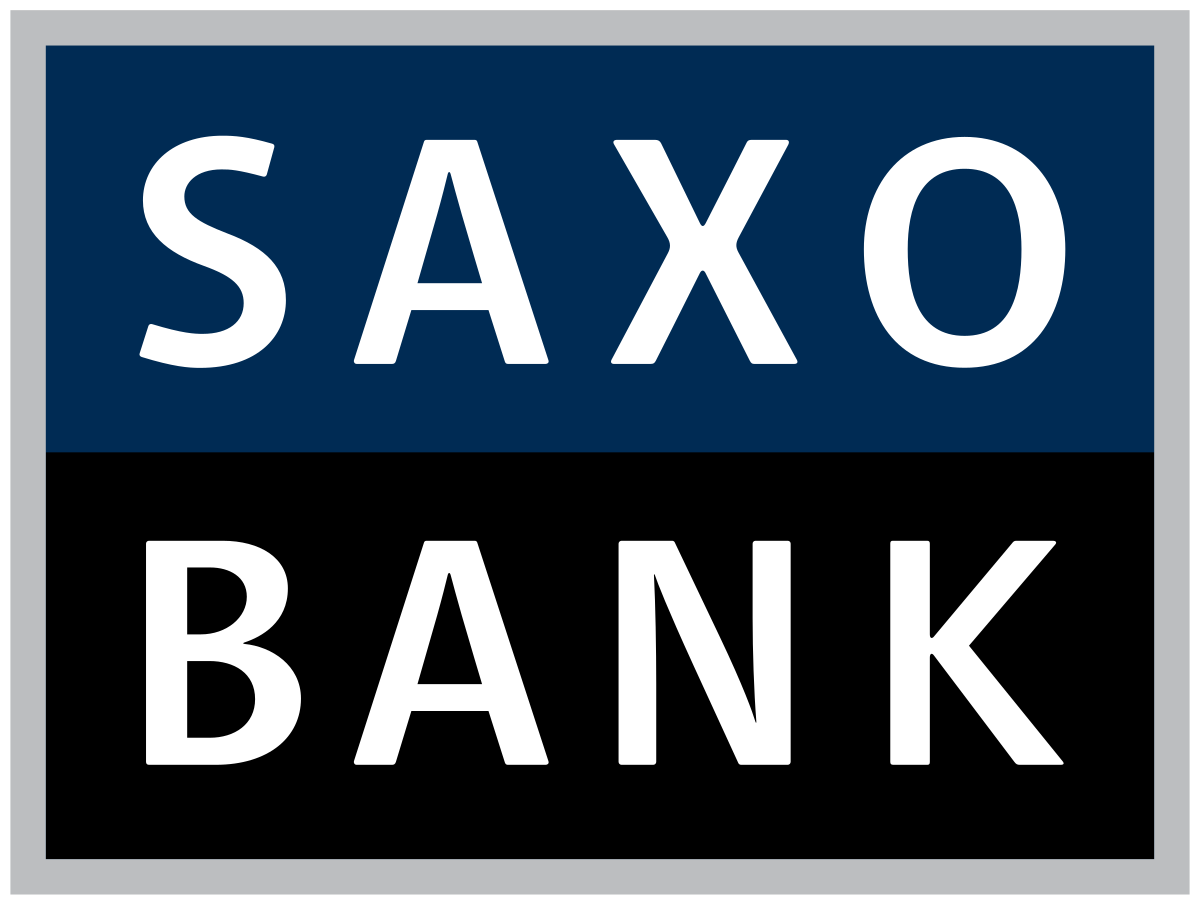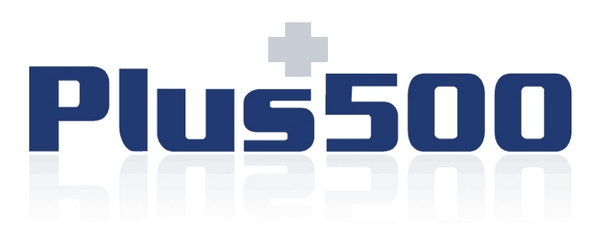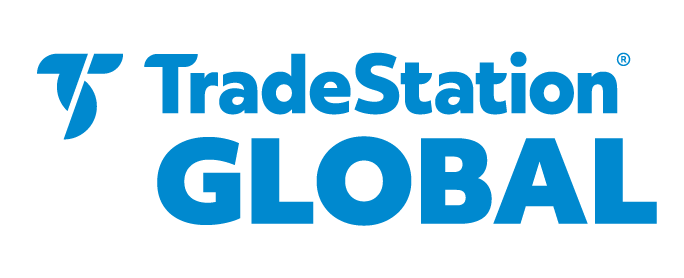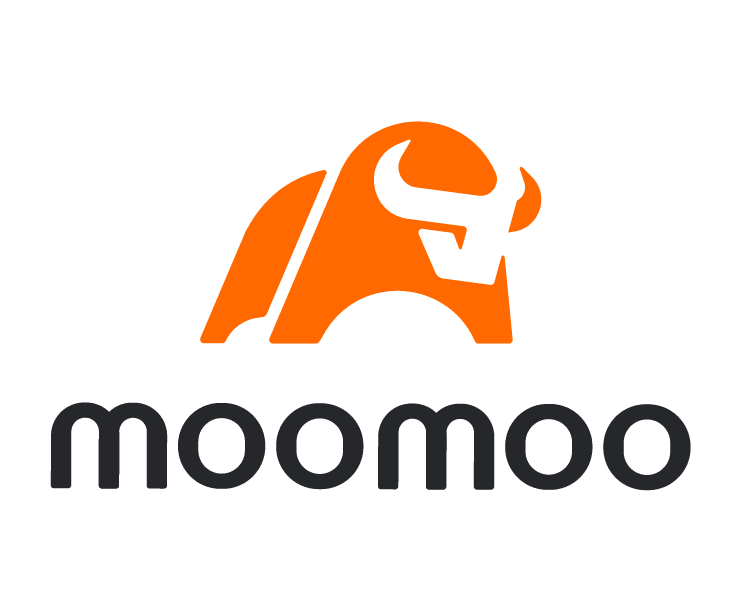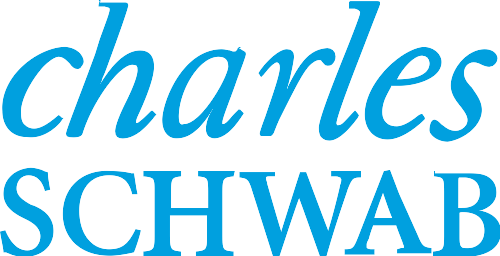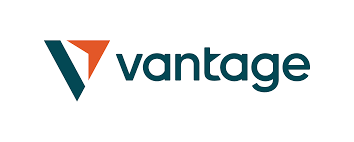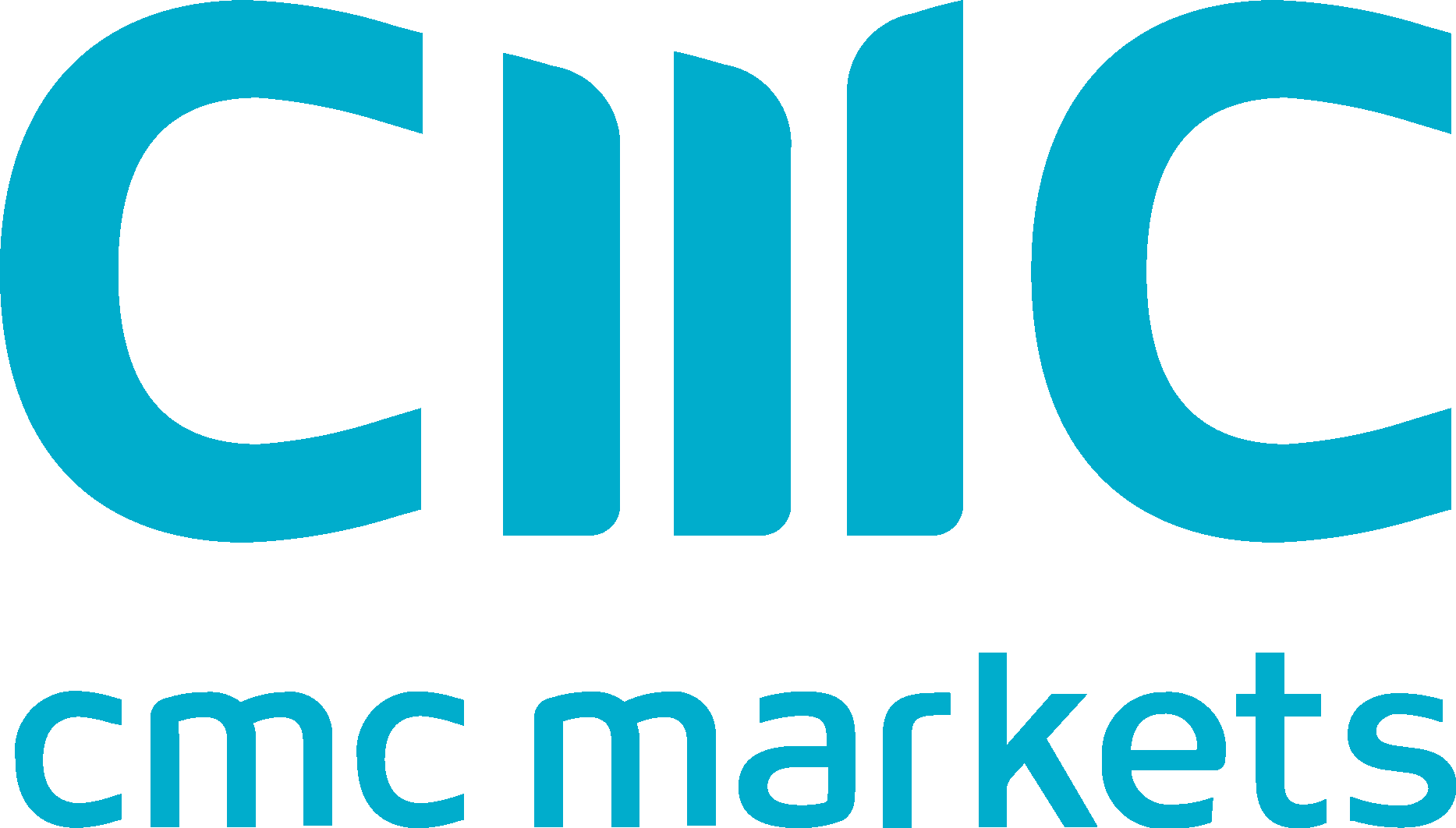- List of The Best Trading Platform
- Brokers Comparisons & In-Depth Highlights
- Hong Kong Market Overview
- Key Factors to Consider
- Platform Selection Criteria in Hong Kong
- Popular Trading Instruments in Hong Kong
- Top Trading Platforms in Hong Kong
- Advantages of Trading for Hong Kong Residents
- Tips for Hong Kong Traders
- FAQs
A key strength of Hong Kong is its rules-based market. Brokers and exchanges are overseen by the Securities and Futures Commission (SFC), and retail investors have recourse to the Investor Compensation Fund (ICF) (up to HK$500,000 per investor for securities and HK$500,000 for futures in the event of a licensed intermediary’s default). Competitiveness has also improved at the margin since the stamp duty on stock trades was trimmed back to 0.10% per side on 17 November 2023.
List of The Best Trading Platform
Here’s a quick comparison of the best trading platform based on their compatibility and market access.
| Best For | Commision | Min Dep | Leverage | Platforms | ||
|---|---|---|---|---|---|---|
| Professional traders | From $0.005/share (US) | $0 | Up to 1:40 (margin) | Trader Workstation (TWS) WebTrader Mobile | ||
| High-net-worth individuals | From $3 per lot (FX) | $500–$2,000 | Up to 1:66 | SaxoTraderGO SaxoTraderPRO | ||
| CFD traders | Spread-only (0% commission) | $0 | Up to 1:200 | IG Trading Platform MetaTrader 4 ProRealTime | ||
| International access to US markets | $0 on US stocks | $0 | Margin-based | Thinkorswim Web Platform | ||
| Social trading | No commission (spreads) | $200 | Up to 1:30 (1:2 crypto) | eToro Platform (Web + App) | ||
| Simplicity and low costs | Spread-based only | $100 | Up to 1:300 | Plus500 WebTrader Mobile App | ||
| Automated trading options | From $5 per lot | $100 | Up to 1:400 | MetaTrader 4 MetaTrader 5 AvaTradeGO | ||
| Active technical traders | From $0.007/share | $1,000 | Up to 1:50 (margin) | TradeStation Platform TWS (via IBKR) | ||
| Mobile-first investing | $0 commission (US stocks) | $0–$50 | Up to 1:20 | Moomoo App (iOS/Android/Desktop) | ||
| Access to Chinese equities | $0 on US stocks (spread FX) | $100 | Up to 1:20 | Tiger Trade App | ||
| US-focused long-term traders | $0 on US-listed stocks | $0 | Margin-based | Schwab.com StreetSmart Edge | ||
| Forex specialists | No commission (spreads) | $1 | Up to 1:50 | MetaTrader 4 OANDA Web + Mobile | ||
| MT4/MT5 users | From $3 per lot (RAW) | $50–$200 | Up to 1:500 | MetaTrader 4 MetaTrader 5 Vantage App | ||
| Advanced charting tools | Spread-only | $0 | Up to 1:200 | Next Gen Platform MetaTrader 4 | ||
| Zero-commission trading | $0 commission (spreads) | $20 | Up to 1:500 | Capital.com WebTrader Mobile App |
Brokers Comparisons & In-Depth Highlights
Interactive Brokers
Interactive Brokers
Interactive Brokers (IBKR) consistently ranks as one of the most comprehensive platforms for active and institutional-level traders. With direct market access to 150+ exchanges worldwide, including HKEX, it supports multi-asset trading with professional-grade tools.
Key Features:
- Regulated in Hong Kong (SFC license)
- Access to stocks, ETFs, options, futures, and forex
- Tiered and fixed pricing options
- TWS (Trader Workstation) platform with algorithmic tools
- Low margin rates and transparent cost breakdown
Best Suited For: Experienced traders, hedge funds, and asset managers.
Saxo Bank
Saxo Bank
Saxo Bank offers a premium platform experience with advanced risk management tools and rich market data. The SaxoTraderGO and SaxoTraderPRO platforms serve investors who demand performance, reliability, and global asset coverage.
Key Features:
- Licensed in Hong Kong and other Tier-1 jurisdictions
- Over 40,000 instruments across 30+ global exchanges
- Institutional-grade platform design
- Research-backed analysis and real-time data
Ideal For: Wealthy individuals, family offices, and serious traders.
IG Markets
IG Markets
IG Markets is known for its user-friendly interface and deep liquidity access across CFDs, forex, indices, and cryptocurrencies. Regulated by the SFC, it’s popular among Hong Kong traders due to its transparent pricing and robust trading infrastructure.
Highlights:
- CFD trading across 17,000+ markets
- Fast order execution and competitive spreads
- IG Academy for strategy development
- MT4 and web platform support
Best For: CFD traders looking for speed and variety.
TD Ameritrade
TD Ameritrade
Although not based in Hong Kong, TD Ameritrade enables international investors to trade on the US stock market with ease. It’s widely appreciated for its Thinkorswim platform, analytical tools, and commission-free stock trades.
Advantages:
- Access to NASDAQ, NYSE, and AMEX
- Free educational tools and strategy builders
- No platform or inactivity fees
- Paper trading and simulated strategies
Suited For: Traders who prioritize US equities and advanced charting.
eToro
eToro
eToro provides a distinctive social trading platform where users can follow, copy, or discuss strategies with others. Though its primary strength lies in crypto and stock CFDs, it also covers a variety of global instruments.
Features:
- CopyTrader™ functionality
- Commission-free stock trading (spread-based pricing)
- Real-time social feed and sentiment metrics
- Multi-currency support including HKD and USD
Target Users: Social traders and crypto-focused investors.
Plus500
Plus500
With a clean interface and minimal distractions, Plus500 is ideal for newcomers who want quick access to CFDs. The platform is authorized by SFC and several other top-tier regulators.
Standout Features:
- Simple platform with price alerts
- Risk management tools like guaranteed stop-loss
- Broad asset classes: crypto, indices, forex, shares
- 0% commissions, profit is spread-based
Best Fit: Traders seeking ease of use and cost clarity.
AvaTrade
AvaTrade
AvaTrade supports automated trading through multiple platforms including MetaTrader 4/5 and AvaSocial. Known for its fast execution, it covers a wide selection of markets and is regulated in several regions including Hong Kong.
Main Offerings:
- Access to AvaOptions and DupliTrade
- Leverage up to 400:1 (varies by region)
- Multilingual customer communication
- Tight spreads and 24/5 trading
Popular Among: Forex and automated system traders.
TradeStation Global
TradeStation Global
This solution combines TradeStation’s charting capabilities with IBKR’s global execution power. It is especially attractive for users needing advanced backtesting or algorithmic trading strategies.
Tools and Features:
- Direct connection to Interactive Brokers
- Custom scripting with EasyLanguage
- Full suite of technical analysis tools
- Competitive fee model
Recommended For: System traders, technical analysts, and algo developers.
Moomoo
Moomoo
Moomoo is gaining traction in Hong Kong with its mobile-first approach, gamified UI, and fast order execution. It provides access to HK and US stocks with 0-commission plans.
Highlights:
- Licensed by the SFC
- Real-time Level 2 market data
- Smart orders and customizable alerts
- Deep integration with news and research
Designed For: Millennial and mobile-centric investors.
Tiger Brokers
Tiger Brokers
Tiger Brokers appeals to cross-border traders who need access to China, Hong Kong, and US stocks on a single platform. It’s SFC-regulated and offers strong market data integration.
Key Advantages:
- Multi-market, multi-currency account
- Options and margin trading available
- Desktop and mobile platforms available
- Detailed P&L tracking and analytics
Best For: Traders focusing on China/HK/US markets.
Charles Schwab
Charles Schwab
A long-standing platform popular for retirement and long-term wealth strategies, Charles Schwab offers access to a broad selection of financial products. Though not SFC-licensed, it serves many Hong Kong users remotely.
Core Features:
- Commission-free ETFs and US stocks
- Research tools from Morningstar and Credit Suisse
- Schwab Global Account available
- Low minimums and no account maintenance fees
Fit For: Long-term investors prioritizing stability.
OANDA
OANDA
Specialized in forex and CFDs, OANDA brings institutional-level spreads and execution quality to retail users. It’s a solid choice for currency traders in Hong Kong.
Key Benefits:
- Advanced fxTrade platform
- Access to more than 70 currency pairs
- API trading and MT4 compatibility
- Price transparency with real-time rate feeds
Top Pick For: Currency and scalping traders.
Vantage
Vantage
Vantage offers ECN execution with raw spreads and fast servers, appealing to users needing precision and speed. It’s often used for high-frequency and forex strategies.
Benefits:
- MetaTrader 4/5 with add-ons
- Forex, commodities, indices, and crypto CFDs
- Partner programs and VPS hosting
- Multiple account types with varying spreads
Useful For: MT4/MT5-focused traders.
CMC Markets
CMC Markets
With its advanced trading infrastructure and excellent charting tools, CMC Markets stands out in the CFD sector. The Next Generation platform supports precision trading with advanced order types.
Platform Features:
- 12,000+ instruments across forex, stocks, and indices
- One-click execution with price ladders
- Interactive charting and pattern recognition
- Regulated by the SFC and FCA
Fitted For: Traders requiring depth and technical flexibility.
Capital.com
Capital.com
Capital.com focuses on commission-free trading with a strong emphasis on education and risk controls. It offers CFD trading across thousands of assets and supports modern AI-based tools.
Notable Tools:
- Real-time newsfeed and analysis
- AI-powered insights on user behavior
- 0% commission, competitive spreads
- Web platform and mobile app available
Best For: Cost-conscious users exploring CFDs and education-driven trading.
Hong Kong Market Overview
Hong Kong’s economy is gradually recovering, with real GDP up ~3.1% year-on-year in Q2 2026 (vs 3.0% in Q1), underpinned by a highly service-oriented structure (90%+ of GDP) and deep integration with trade, finance, and tourism.
Economic & Structural Overview
- In Q2 2026, Hong Kong’s real GDP grew ~3.1% year-on-year, slightly higher than the 3.0% in Q1.
- The economy is driven by exports, trade, financial services, and tourism.
- After several years of headwinds (including COVID disruption and China’s slower growth), Hong Kong is gradually recovering.
Economic Structure
- Hong Kong is extremely service-oriented: over 90% of GDP comes from the services sector.
- It is heavily dependent on trade and finance. As a free port, many goods, capital, and people pass through Hong Kong as a gateway to China and global markets.
- The city maintains a linked exchange rate system, where the Hong Kong dollar (HKD) is pegged to the U.S. dollar (USD).
Capital Markets: HKEX, IPOs & Derivatives
- The Hong Kong Exchanges and Clearing (HKEX) group continues to post record results. In its 2026 interim report, it reported its best ever half-year revenue and profits.
- Trading volumes, both in equities and derivatives, have broken records.
- HKEX has reclaimed the title of world’s No. 1 IPO venue by funds raised in 2026 (for the first half).
Market Activity
- The average daily turnover (ADT) in the stock market in H1 2026 reached HK$240.2 billion (YoY +118%) in some metrics.
- Derivative markets, stock connect (linking with mainland China exchanges), and cross-border flows are key components of the trading ecosystem.
Infrastructure & Reforms
- HKEX is working on accelerating settlement cycles to stay competitive and improve operational efficiency.
- The exchange is pushing enhancements to its listing frameworks and diversifying its product offerings (commodities, derivatives, etc.).
Key Strengths & Comparative Advantages
Global Financial Hub:
- Hong Kong remains one of Asia’s top capital markets and financial centers, serving as a gateway between China and the world.
- Its legal system, rule of law, connectivity, and financial infrastructure draw global firms and investors.
Strong IPO Platform:
- Because many Chinese and regional firms prefer listing in Hong Kong, the city sees frequent large IPOs — helping liquidity and investor interest.
- The recent Zijin Gold IPO is a case in point, where its Hong Kong debut saw a sharp surge.
Deep Market Liquidity & Access:
- Active equity and derivatives markets, plus connections to mainland exchanges via Stock Connect, make Hong Kong a very liquid market.
- The scale of trading, investor base, and product diversity are very high.
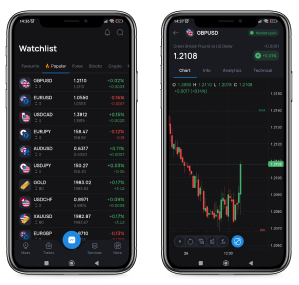
Pegged Currency Stability: The HKD-USD peg gives relative foreign exchange stability and predictability for capital flows and pricing.
Reform Momentum: Recent reforms and modernization efforts — in infrastructure, settlement, product innovation — aim to keep Hong Kong competitive as markets evolve.
Risks, Challenges & Headwinds
Real Estate & Property Downturn:
- The property sector in Hong Kong has been under pressure for years, and falling asset prices stress the banking sector and investor sentiment.
- Recent news suggests property woes are testing banks’ balance sheets.
Dependence on China & Mainland Risks:
- While Hong Kong is a link to China, it also inherits regulatory, geopolitical, and macro exposure from mainland shifts (policy, regulation, growth).
- Diverging priorities between Hong Kong’s autonomy and Beijing’s strategies add uncertainty.
Competition from Mainland Exchanges:
- Shenzhen, Shanghai, and other mainland markets are becoming stronger and more competitive, especially in listings and tech firms.
- Some capital and deal flows may bypass Hong Kong.
Global Macroe Risks:
- Changes in U.S. interest rates, global inflation, trade tensions, and capital flows can impact Hong Kong’s markets significantly.
- The dollar peg imposes constraints in monetary flexibility.
Social / Political Uncertainties: Governance, regulatory shifts, and national security legislation may weigh on investor confidence if perceived as reducing institutional safeguards
Opportunities & Trends Going Forward
- Commodity & Alternative Assets: HKEX expanding into commodities and alternative products may open new trading avenues.
- Fintech / Innovation: Hong Kong is pushing for more innovation in fintech, blockchain, digital assets, and green finance.
- Greater China Integration: Strengthening links via Stock Connect, the Greater Bay Area, and cross-border capital flows.
- Sustainability & ESG: Rising interest in ESG (environmental, social, governance) investing may influence listings and funds.
- Global Repositioning: As global capital seeks diversified exposure in Asia, Hong Kong may recapture more leadership in IPOs and fund-raising.
Key Factors to Consider
When evaluating the best trading platform in Hong Kong, investors should carefully review several aspects that influence both short-term trading experience and long-term investing results. Below are the main factors to focus on:
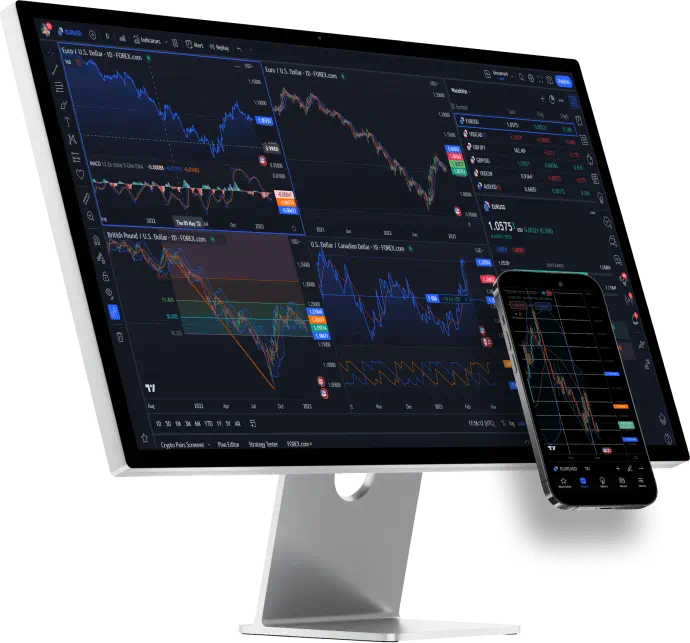
Regulation and Safety
- Ensure the broker is licensed by the Securities and Futures Commission (SFC).
- Look for strong investor protection measures such as segregated client funds and negative balance protection.
- Prefer platforms with transparent financial reporting and established reputations.
Trading Costs
- Compare commission structures (flat fee vs. percentage).
- Review bid-ask spreads, especially in forex and CFDs.
- Check overnight financing rates and hidden charges (inactivity fees, withdrawal costs).
- Consider promotional fee discounts but focus on long-term cost efficiency.
Platform Usability and Technology
- Desktop and mobile availability, with stable performance.
- Advanced charting tools, indicators, and real-time data.
- Fast trade execution with minimal slippage.
- Integration with algorithmic trading, APIs, or third-party platforms for professional users.
Product Range
- Access to Hong Kong-listed stocks, ETFs, and warrants.
- International market availability for diversification (US, EU, Asia-Pacific).
- Range of instruments: forex, commodities, bonds, futures, and options.
- Availability of fractional shares and margin trading for flexibility.
Customer Support and Education
- 24/5 or 24/7 multilingual support (Cantonese, Mandarin, English).
- Availability of local service centers in Hong Kong.
- Research tools, market news, and trading signals.
- Educational webinars, tutorials, and demo accounts for beginners.
Funding and Withdrawals
- Local deposit options: bank transfers, FPS (Faster Payment System), credit/debit cards.
- Speed and reliability of withdrawals.
- Transparent policies regarding minimum deposits and withdrawal limits.
Platform Selection Criteria in Hong Kong
When evaluating a trading platform for use in Hong Kong (for forex, securities, virtual assets, etc.), local regulation and market practices introduce certain additional criteria. Below are key factors to keep in mind:
Regulatory Compliance & Licensing
- The platform or broker should be licensed or regulated under Hong Kong’s regulatory regime—specifically by the Securities and Futures Commission (SFC) under the Securities and Futures Ordinance (SFO).
- For virtual asset trading platforms (VATPs) in Hong Kong, the SFC’s licensing regime (effective 1 June 2023) now requires centralized platforms marketing to Hong Kong investors to be licensed.
- The platform might also need to comply with the Anti-Money Laundering / Counter-Terrorist Financing obligations under Hong Kong’s AMLO regime if it handles virtual assets.
- Dual licensing (under SFO and AMLO) is often expected for platforms offering both security tokens and non-security tokens to Hong Kong users.
Asset Types & Product Legality
- Leverage Foreign Exchange Contracts are permitted in Hong Kong (i.e. spot FX contracts with leverage), subject to regulation.
- CFDs on securities are heavily regulated and in many cases must be exchange-traded rather than OTC, limiting what many brokers can legally offer.
- Virtual assets (crypto, security tokens, non-security tokens) need to adhere to the rules of the VATP regime and be allowed under SFO/AMLO as applicable.
- The platform should clearly disclose which instruments are permitted for retail vs professional clients per regulatory classification (i.e. some products may only be open to professional investors).
Client Asset Segregation & Custody
- The platform should hold client assets (cash, securities, virtual assets) in segregated accounts or via a trust arrangement, distinctly separate from its own corporate assets.
- For virtual assets, the platform may be required to use a separate associated entity for custody functions, with robust cold/hot wallet controls and security policies.
- Clear procedures should exist for how deposits, withdrawals, and transfers of client assets are handled, especially in adverse events or system failures.
Risk Management, Governance & Internal Controls
- The platform should demonstrate strong risk management policies: stress testing, exposure limits, margin rules, risk monitoring.
- Transparent governance structure: independent risk/compliance functions, documented operational policies, segregation of duties.
- Technology controls: system resilience, redundancy, disaster recovery, cybersecurity defenses, intrusion detection, encryption.
Execution Quality, Latency & Infrastructure
- High performance in trade execution: minimal slippage, fast fills, stable order matching.
- Reliable infrastructure: uptime, backup systems, low latency routing.
- Multi-platform support (desktop, web, mobile) with consistent experience across devices.
Pricing Transparency & Fees
- Clear display of spreads, commissions, swap/overnight costs, and any hidden markups.
- Fee structure should be clearly explained and accessible to clients.
- Be cautious of platforms that advertise “zero commission” but widen spreads or impose other hidden costs.
Customer Onboarding, Support & Localization
- Clear and compliant onboarding (KYC / AML procedures) that satisfy Hong Kong regulatory requirements.
- Support in English and possibly Cantonese / Mandarin to assist local users.
- Availability of support during Hong Kong business hours and prompt handling of issues.
Client Suitability & Risk Warnings
- For retail clients, platforms should assess suitability: risk appetite, financial status, trading experience.
- For virtual asset / leveraged products, platforms must enforce investor limits or restrictions to protect less sophisticated users.
- Disclosure of risks, warnings, and educational resources (especially for volatile assets like crypto).
Withdrawal / Settlement Mechanisms
- Smooth, reliable withdrawal and settlement processes, with minimal delays.
- Transparent policies regarding withdrawal times, fees, and conditions.
- For virtual assets, crypto withdrawal, “whitelist address” policies and cryptographic controls must be robust.
Popular Trading Instruments in Hong Kong
- Stocks & ETFs: Core focus for most residents—HK, US and other offshore markets through licensed brokers. (Stamp duty applies to HK stocks.)
- FX & CFDs: Offered by certain licensed intermediaries; CFDs carry leverage and complexity—IFEC warns retail investors to exercise caution, especially with offshore providers.
- Futures & Options: HKEX derivatives on equity indices, single stocks, RMB products, and global options via international brokers.
- Cryptocurrencies: Retail access is only via SFC-licensed Virtual Asset Trading Platforms (VATPs); always cross-check the current licensed list.
Top Trading Platforms in Hong Kong
Below is a list of platforms / brokers commonly cited in broker comparisons for Hong Kong:
| Broker | Highlights / Strengths | Things to Check / Limitations for Hong Kong Traders |
|---|---|---|
| Interactive Brokers | Global multi-asset access, low-cost trading, strong research and execution tools. | Ensure you’re opening an account under a Hong Kong-compliant entity (IBHK is SFC-licensed). Platform complexity may not suit beginners. |
| Saxo Bank | Premium trading platform, wide asset selection (stocks, ETFs, forex, bonds), trusted brand. | Higher minimum deposits and fees. Confirm if you’re dealing with the SFC-regulated Saxo entity or another branch. |
| IG Markets | Comprehensive market coverage, excellent trading tools, and research resources. | Verify regulatory structure for HK clients. Not all products may be available locally. Deposit/withdrawal options may vary. |
| TD Ameritrade | Strong US equity and options trading, robust thinkorswim platform. | Limited product access outside US markets. Check if Hong Kong clients are being served via Singapore or other permitted jurisdictions. |
| eToro | Social trading features, commission-free stocks, crypto and CFD access in one platform. | Not SFC-regulated. Confirm if eToro is legally permitted to offer services to Hong Kong clients. Leverage and instruments may be restricted. |
| Plus500 | User-friendly CFD platform with access to forex, indices, commodities, and shares. | Not licensed in Hong Kong. Confirm legal status for retail clients and whether services comply with SFC rules. |
| AvaTrade | Offers MT4/MT5, options, crypto CFDs, and fixed spreads. Regulated in multiple jurisdictions. | Confirm which entity handles your account and if it is permitted to service Hong Kong residents under local laws. |
| TradeStation Global | Access to global stocks and futures, backed by Interactive Brokers infrastructure. | Not a traditional broker for Hong Kong. Confirm onboarding path and whether services are offered through IBHK or an offshore route. |
| Moomoo (by Futu) | SFC-regulated, strong mobile platform, competitive for US/HK stock trading. | Focused mainly on equities; limited forex/CFD access. Fees and currency conversion should be reviewed. |
| Tiger Brokers | Local entity regulated by SFC, strong for US and China-focused investors. | Platform is equity-centric; derivatives and international CFD access may be limited. Margin rules vary by asset. |
| Charles Schwab | Reputable US brokerage, solid for long-term equity and ETF investing. | No direct platform for Hong Kong clients. Access typically via international accounts. Limited product scope for active traders. |
| OANDA | Long-standing forex broker with strong charting, reliable execution, and regulatory presence in major markets. | Not locally licensed in HK. Confirm if it is authorized to accept clients and whether its leverage limits meet your strategy. |
Advantages of Trading for Hong Kong Residents
Hong Kong residents trade in a well-regulated, globally linked market anchored by HKEX and SFC oversight (including the 2023 VATP regime for licensed crypto). They get broad access—HK stocks, ETFs, derivatives, Mainland A-shares via Stock Connect, and global instruments through international brokers—while the HKD-USD peg helps limit FX swings. A tax-friendly setup (no capital gains tax) and strong banking/online infrastructure further support efficient execution and funding.
Strategic Global Financial Hub
- Hong Kong is one of the world’s leading financial centers, with HKEX ranked among the largest exchanges globally.
- Its role as a gateway between China and international markets gives residents access to both regional and global investment opportunities.
Strong Regulatory Environment
- The Securities and Futures Commission (SFC) ensures platforms and intermediaries follow strict rules, offering investor protection and market integrity.
- Since 2023, Hong Kong also has a dedicated Virtual Asset Trading Platform (VATP) regime, making it one of the few regions with a regulated crypto exchange system.
Wide Market Access
- Residents can trade local stocks, ETFs, and derivatives on HKEX.
- Through Stock Connect programs, they can access mainland China’s A-shares.
- International brokers extend access to global forex, commodities, indices, and equities.
Currency Stability (HKD Peg)
- The Hong Kong Dollar (HKD) is pegged to the US Dollar (USD), offering stability in cross-border transactions.
- This reduces currency volatility for residents trading US markets or funding accounts in USD.
Tax-Friendly System
- Hong Kong has no capital gains tax on trading profits, and dividend taxes are minimal compared to many other jurisdictions.
- This significantly boosts net returns for active traders and long-term investors.
Advanced Infrastructure
- High-speed internet, modern banking, and digital payment systems support seamless online trading.
- Integration with global payment processors makes funding and withdrawals easier.
Access to Innovative Products
- Hong Kong promotes green finance, ESG products, derivatives, and structured products, broadening investment opportunities.
- With the SFC’s VATP licensing, residents also gain safe access to regulated cryptocurrency platforms like OSL and HashKey.
Diverse Broker Choices
- Residents can choose between local brokerages (HSBC, Futu/moomoo, Phillip Securities) for HK-centric exposure or global brokers (Interactive Brokers, IG, Saxo, etc.) for international diversification.
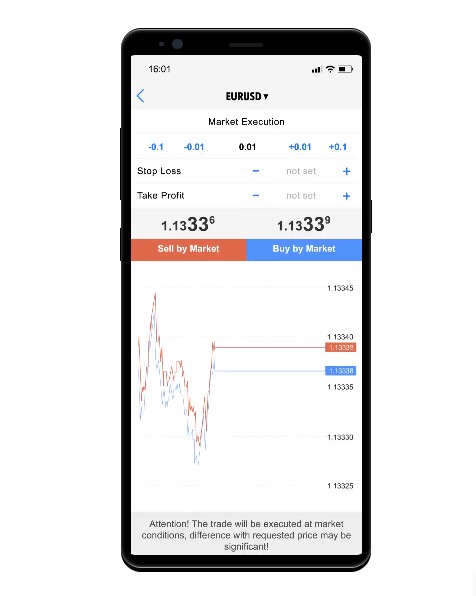
Tips for Hong Kong Traders
1. Verify SFC Licensing
- Always check whether the broker or platform is licensed by the Securities and Futures Commission (SFC).
- For crypto trading, confirm that the platform is a licensed Virtual Asset Trading Platform (VATP) (e.g., OSL, HashKey).
- Avoid unlicensed platforms that market aggressively but lack investor protections.
2. Choose HKD-Friendly Platforms
- Trading in Hong Kong Dollars (HKD) helps avoid unnecessary conversion fees.
- Some global brokers only allow USD or EUR deposits — compare conversion costs carefully before funding.
3. Use Stock Connect Opportunities
- Take advantage of Shanghai-Hong Kong Stock Connect and Shenzhen-Hong Kong Stock Connect, which allow direct access to mainland A-shares.
- These programs open up exposure to China’s fast-growing equity market.
4. Diversify Beyond Local Markets
- While HKEX offers excellent opportunities, don’t limit yourself to local equities.
- Use platforms that provide access to US tech stocks, global indices, commodities, and ETFs to spread risk.
5. Manage Leverage Carefully
- Many platforms (especially CFD brokers) offer high leverage.
- Stick to conservative ratios and always set stop-loss orders to manage downside risk.
6. Stay Updated on Policy & Regulatory Changes
- Hong Kong’s regulatory landscape is evolving, particularly around digital assets and derivatives.
- Monitor SFC announcements and market reforms to ensure compliance and avoid surprises.
7. Test Withdrawals Early
- Before committing large funds, make a small deposit and withdrawal to ensure smooth banking integration with your platform.
- Confirm withdrawal times and whether fees are deducted.
8. Prioritize Platforms with Local Support
- Look for brokers that offer customer service in Cantonese, Mandarin, and English.
- Support available during Hong Kong business hours is crucial for timely issue resolution.
9. Watch Property & China Market Risks
- Hong Kong’s markets are sensitive to China’s economy, property sector volatility, and US interest rates.
- Balance your portfolio with global instruments to reduce concentration risk.
Conclusion
There’s no single “best” platform for everyone in Hong Kong—the right choice depends on what you trade and how you trade. If you value ultra-low costs and global, multi-asset access, platforms like Interactive Brokers (and Saxo for a polished multi-asset experience) are standouts. If you prefer a mobile-first workflow with strong HK/US equity tools and IPO access, Futu (moomoo) or Webull fit well. For bank integration and in-person support, HSBC and Phillip (POEMS) remain reliable options. Deal-seekers who like frequent promotions often look at Tiger Brokers (HK). For crypto, use only SFC-licensed VATPs.
FAQs
Is trading legal in Hong Kong?
Yes—trading through SFC-licensed intermediaries is fully legal. Verify any broker’s licence on the SFC Public Register.


